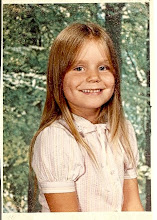Breaking Up with Medical Dramas
When I worked, my Friday mornings were filled with conversations with workmates dissecting last night's Grey's Anatomy. We loved Grey's Anatomy and watched its spin-off, Private Practice. Not with the same dedication as I did with Grey's, but watched it occasionally.
I would say week after week that I'm not watching Grey's anymore. Somehow the writers found the central line to my emotions. Long before those infamous pregnancy hormones began in earnest, I would be curled under my comforter, crying when Denny died. And when O'Malley's dad died? Neighbors probably thought a real tragedy happened in my apartment.
Then Ollie came.
Essentially living at the hospital, I wasn't home anymore on Thursday nights to keep up with these stories. My very own personal medical drama took over. DVR'd episodes would go unwatched. At home, the last thing I wanted was to be reminded of my drama unfolding 20 miles away.
I took a break; lost track of the story arcs, had no idea what was going on anymore. But when Ollie came home, I slowly dipped my toe back into the pool.
My first episode once Ollie came home was a heart-wrenching story of a little girl with cancer who's dad couldn't accept his daughter's fate. He spent his last moments with his daughter not cuddling and snuggling with her, but frantically trying to get her to Mexico for some miracle treatment.
You want to know when I cried? The first shot of the daughter with a nasal cannula on her face. I had no idea how her story would end yet, the very first shot had me sobbing.
I wasn't ready.
Now that Ollie is thriving, without a nasal cannula on his face, I can visit Seattle Grace again, but now without tears. I can get wrapped up in the drama that is finally so unlike my own that I can believe it. With no medical education, I don't know how likely or unlikely a patient's case is, I can buy the story off-the-rack, no alterations needed.
Until they take the path into micro-preemies.
Grey's Anatomy and Private Practice have both had me a bit sour this season. With their dramatic story lines that include the special drama that is reserved for parents and families of preemies and micro-preemies, I have to admit, I feel a little exploited. Nothing like having your own real-life situation that's so dramatic that a prime-time medical drama is written around it.
Using story lines that are written for the utmost in drama, these arcs can either flash me back to Ollie's NICU experience, complete with worry, tears, uncertainty and pain, or they can make me realize that the writers research the worst possible scenarios for a medical situation.
It's their job to rile up emotions, but with preemie stories, they tend to miss the mark a bit.
On Private Practice, it was reinforced to the parents of a 25-weeker that having a surviving micro-preemie is a tiny chance, given his birth. It was cruel to let him live on a ventilator and with a feeding tube. They were hurting him by hoping for a miracle.
The pulse-ox monitor wasn't even on! Pshaw...Those doctors don't know nuthin'.
In the end, the story behind this 25-weeker on Private Practice had the parents tearfully said their goodbyes to their baby, pushed by the doctors to end his suffering.
I realize that these story lines are written for high viewership. I realize these writers probably took a quick few glances at some worst-case scenarios of preemie-hood and pounced on them. I realize I don't watch medical dramas to be educated on cancer, premature births, bombs in or poles through the abdomen. I realize in an hour-long drama, they don't have time to dedicate to a true story of preemie success.
But shouldn't they feel some sort of responsibility to educate on the better sides of real-life medical dramas?
Wouldn't they want to reinforce the idea that our medical advancements aren't just for the old and feeble, but also for babies who are dealt huge odds against them?
Had that episode of Private Practice aired a year ago, it would have crushed me. Parents with a child in the NICU have so much stacked against them. The last thing that they need is anyone telling them that what they're doing for their child is cruel, causing suffering, and outside reality that a baby born that early could survive.
If anything, the prop-master should have made sure the light was on on the pulse-ox monitor.
A year since Ollie's been discharged, we were able to watch the episode. We even paused it a couple times to discuss our experience and what we learned versus the drama being shown. We pointed out the things that made this an unbelievable story, rather than buying the idea straight off the rack. And, while that baby's story is truly a worst-case scenario that could have happened, I ended the show with a feeling of sadness and heavy hearts.
Not because they didn't do everything to save the baby, but because there are parents in the world, going through a similar situation. Right now. Today.
Parents who need a positive story right now didn't get it. They got a worst-case scenario gleaned from medical information for high ratings, and that, truthfully, honestly and whole-heartedly, sucks.
I would write more about how much that sucks, but my 28-weeker, who was less than 2 pounds at birth, who lived on a ventilator for 10 days and ate through a feeding tube for months, who had parents who prayed for miracles and got them, is waking up from his nap.




1 comments:
I've had to ditch the medical dramas too! They still make me mad with their inaccurate and depressing views on preemies!
Post a Comment